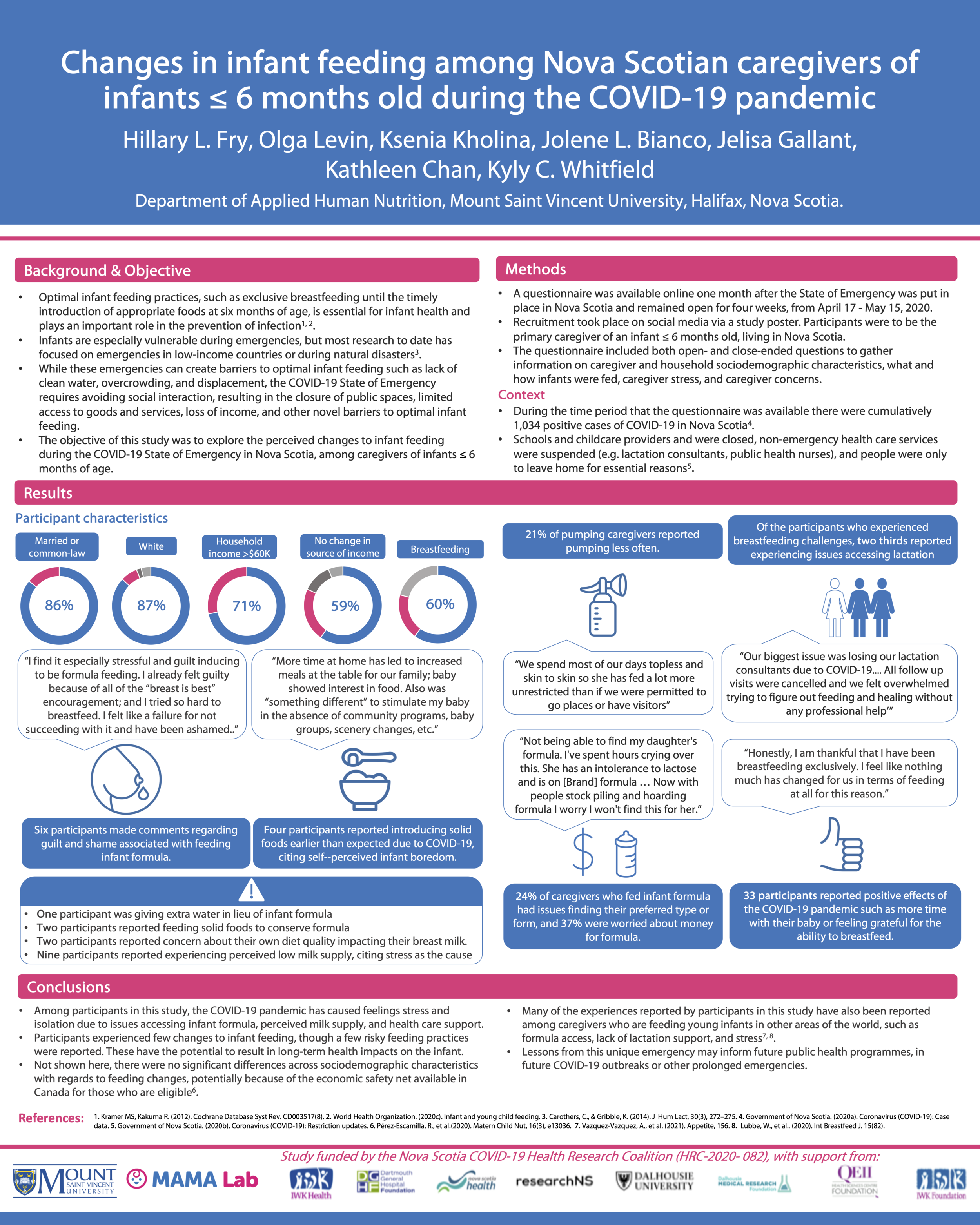In April 2020, the MAMA Lab set out to explore what Nova Scotian caregivers of newborns were experiencing during the COVID-19 State of Emergency, and whether the pandemic was changing how or what caregivers were feeding their babies. To do this, we created an online survey which opened one month after the provincial State of Emergency was declared in Nova Scotia. Remembering back to this time, non-emergency healthcare was suspended, public indoor spaces and non-essential businesses were closed, social contact was only allowed within household ‘bubbles’, and even outdoor activities were limited. In the month afterwards, 335 new parents filled out our survey. Participants were nearly all female, white, and generally had high household incomes. Over half of participants were breastfeeding, while 21% were formula-feeding and 19% were feeding both formula and breastmilk.
Overall, most caregivers didn’t change the way they were feeding their babies due to the pandemic. Some breastfeeding caregivers changed how often they were pumping, but most feeding changes were not pandemic-related, but instead were due to baby’s age or preferences. Many formula-feeding participants had issues with access to infant formula, especially caregivers of babies with dietary restrictions, due to stockouts caused by stockpiling, or due to cost.
Even though caregivers didn’t report changes, they did report many common worries and concerns. Many caregivers, regardless of feeding method, reported feeling unsupported without access to normal programs, health care, and lactation supports, causing concern about their baby’s health, growth, and development. Some formula feeding participants also felt guilt or shame related to feeding formula and were concerned about the supply chain.
On the other hand, some participants also talked about positive changes and experiences related to the pandemic, including more time at home with their baby, more feeding on demand, and more support within their household bubbles. Some were also happy to experience less breastfeeding in public and no visitors at home, creating less pressure from others.
If you are experiencing these changes or these emotions, know that you’re not alone! Click here for some resources that may help you during this time.
Want to read more? The results of this study were published in February 2021: Fry et al 2021 Maternal & Child Nutrition e13154 doi: 10.1111/mcn.13154
You can also read more about the study here:
Study finds pandemic boosted worries among new moms in N.S. (Stuart Peddle) Halifax Chronicle Herald. April 15, 2021.
Study looks at how babies have fared during the pandemic (Yvette d'Entremont) Halifax Examiner. April 22, 2021.
Study highlights impact of state of emergency measures on infant and caregiver wellbeing. Research Nova Scotia, April 7, 2021.
Resources
Read report here
Summary of study results
Key findings for healthcare professionals
Poster presented at the 2021 Canadian Nutrition Society conference







